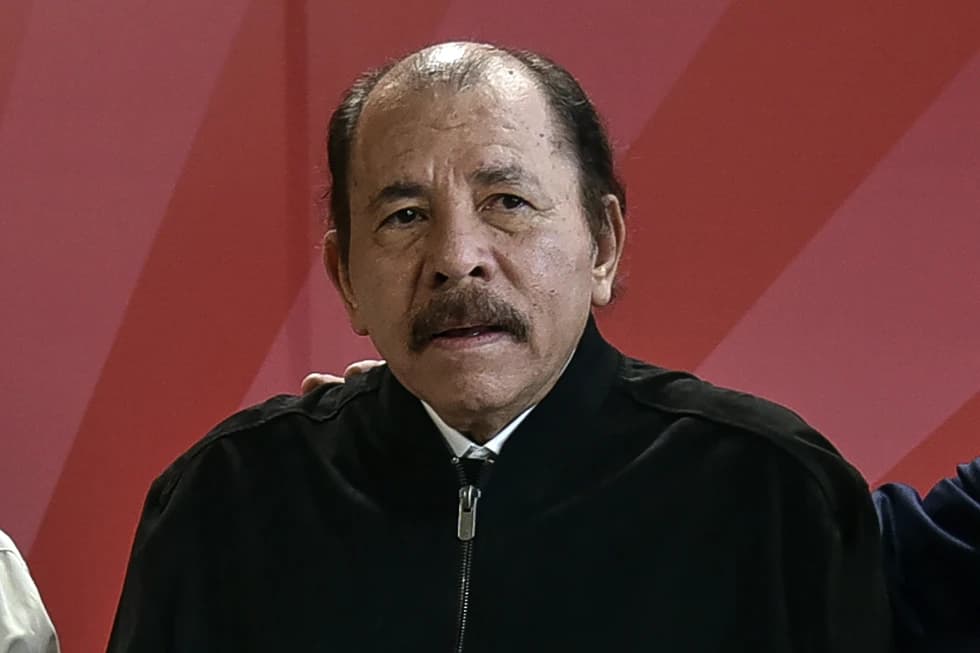SÃO PAULO, Brazil – In its latest crackdown on religious groups, including the Catholic Church, the Nicaraguan government has shut down hundreds of nonprofits and declared that from now on religious bodies will have to declare income and pay taxes.
On Aug. 19, the regime headed by President Daniel Ortega and his wife, Vice President Rosario Murillo, issued a decree that closed 1,500 civic organizations, claiming that such entities have failed to present their financial reports for several years. All properties connected to such organizations will be transferred to the government.
In the context of Nicaraguan politics, churches are often seen as bases of support for opposition by the Ortega government, and have suffered increasing pressure and assaults.
The list of targeted institutions included several Christian churches and associations and a number of Catholic institutions, such as the Diocese of Granada’s Caritas and the congregation Madre del Divino Pastor (Mother of the Divine Shepherd).
According to the Nicaraguan newspaper La Prensa, the congregation has three schools in the cities of Diriamba, Managua, and Bluefields. The one in Diriamba informed the community that it will now be administered by the Ministry of Education. Parents were told that for now no changes concerning tuition and classes will be applied, given that the school hasn’t yet been contacted by the government.
The religious sisters who run the school, however, are preparing to abandon their belongings, schools and houses, fruits of a 101-year-old work in Nicaragua. According to La Prensa, sources informed it that the school’s principal was out of the country when she learned about the decision. When she tried to come back, she was blocked by the regime.
The newspaper added that was the first time the government has shut down so many non-governmental organizations at once. Another 3,600 NGOs have been closed since 2018.
Only three days later, the government decreed the end of the legal status of another 151 civic organizations, all of them chambers of commerce and trade associations.
Last week, the Nicaraguan government announced that civic institutions will only be allowed to operate if they establish “association alliances” with state entities.
On Aug. 22, the regime also released modifications to the tax legislation, canceling tax exemptions for churches. Now, all religious entities will have to report their income and pay taxes that can reach 30 percent.
The measure was received by critics of the regime and members of the church as an attempt to “financially suffocate” religious bodies in Nicaragua.
“It’s not so much a matter of finance. If priests were paid a salary, it would be normal for them to pay taxes. But that measure is really about the Sandinista regime trying to weaken the churches, to destroy them, and take control of them,” Father José María Tojeira, the spokesman of the Jesuits in El Salvador – where many Nicaraguan Jesuits took refuge after the society’s university in the country was shut down – told Crux.
In Tojeira’s opinion, the regime wants to impose more and more “a dictatorship of monolithic thinking.”
“Religion is one of the few social segments that incentivize a distinct set of ideas in the face of the dictatorship. That’s why they have been closing NGOs and that’s why they want to destroy the church as much as possible,” he added.
For Eliseo Núñez, a Nicaraguan political analyst currently in exile in Costa Rica, “the scrutiny of the alms” that is being implemented by the regime is a new low in a sequence of dictatorial measures.
“The churches will have to declare all money they receive and then pay taxes. But that money certainly had already been taxed when it belonged to the people,” Núñez told Crux.
In his opinion, the Sandinista regime “wants to financially suffocate the church,” something that began months ago when parishes and Caritas organizations had their bank accounts frozen or suspended by the government and couldn’t take their money from them.
“They’re using a wasteland strategy. They want to completely destroy the church,” Núñez concluded.
The local news website Mosaico CSI, which operates in the region of Matagalpa, reported on Aug. 18 that two more priests left Nicaragua for exile in the Vatican.
Father Denis Martinez of Matagalpa and Father Leonel Balmaceda of Estelí, both dioceses headed by Bishop Rolando Álvarez, the regime’s major target in the Catholic Church, who is now exiled as well, had been detained on Aug. 10 and 11, and were sent out of Nicaragua on Aug. 14.
On Sunday, Pope Francis expressed fresh concern over developments in the Central American country.
“To the beloved Nicaraguan people, I encourage you to renew your hope in Jesus,” the pontiff said. “Remember that the Holy Spirit always guides our history towards higher projects. May the Immaculate Virgin protect you in moments of trial and make you feel her maternal tenderness.”
“May the Madonna accompany the beloved people of Nicaragua,” he said.












